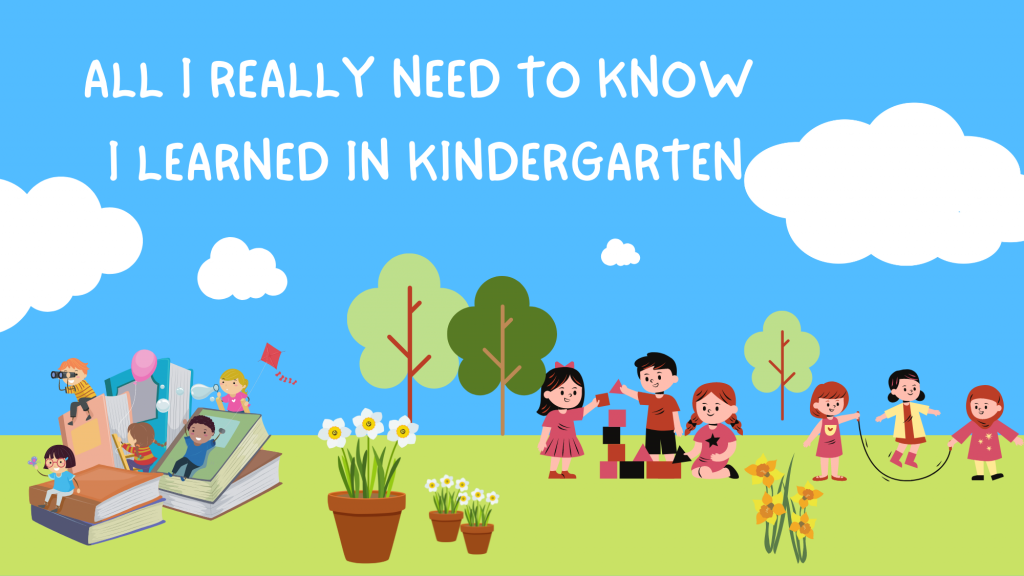All I Really Need to Know I Learned in Kindergarten

Infocomm Media Development Authority (IMDA) has a program called Seniors go Digital to help seniors to embrace digitalisation. So is there a digital divide for the seniors and how can we encourage more seniors to go digital?
Based on 2021 statistics, there are 650k seniors above the age of 65 [Note 1]. We can safely classify them as the baby boomer generation. They are not digital natives like the millennium. So how are they coping with the increased digitalisation of society? Seniors are not a homogeneous lot, we have to consider their social, economic and educational backgrounds. IT tools are just enablers.
It is about the motivation to learn, the end goal, and personal interest. My older cousin is around 65 years old and in semi-retirement. But he learned how to use his mobile phone so that he can be a Grab driver. My friend’s 80 years old mother learns to use WhatsApp and WeChat to socialise with her Qigong group and social workers. Besides a growing mindset, it depends on the individual’s agenda, circumstances, and motivation.
Many years ago I read a book titled ‘All I Need to Know I Learned in Kindergarten’ by Robert Fulghum. The author believes we learned the fundamental values and expected social norms and behaviour during kindergarten days. This reminded me that, as an integral part of development, children learned and discovered through play. As an adult, we make life all about work and forgot about play. However, play is not just for kids.
For my workshops, I often encourage the adults to give themselves permission to play. Play like a child without the fear of failure. Play allows us to learn how to be creative. Playing without inhibition of failure and losing face. I wrote a blog about Learn, unlearn and relearn earlier. In order to do that, an adult needs to be relaxed and in a playful mood like a child. In fact, playing can stimulate our imagination, helping us to adapt and solve problems.
Let us rediscover the pleasure of play and creativity and give our brains a chance to “light up”.
Infocomm Media Development Authority (IMDA) has a program called Seniors go Digital to help seniors to embrace digitalisation. So is there a digital divide for the seniors and how can we encourage more seniors to go digital?
According to the Singapore Department of Statistics, there are 639k seniors above the age of 65 [Note 1]. We can safely classify them as the baby boomer generation. They are not digital natives like the millennials. So how are they coping with the increased digitalisation of society? Seniors are not a homogeneous lot. We have to consider their social, economic and educational background. IT tools are just enablers.
Those who adapt well are the ones who are motivated to learn, curious about new things and not afraid to venture into new ground. My older cousin is around 65 years old and in semi-retirement. He learns how to use his mobile phone to become a Grab driver. My friend’s 80 years old mother learns to use WhatsApp and WeChat to socialise with her Qigong group and social workers. Besides a growing mindset, it depends on the individual’s agenda, circumstances, and adaptability.
Many years ago, I read a book titled ‘All I Really Need to Know I Learned in Kindergarten’ by Robert Fulghum. The author believes we learned the fundamental values and expected social norms and behaviour during kindergarten days. It reminded me that, as an integral part of development, children learn and discover through play. As adults, we revolve our lives around work and forget about playing. However, playing is not just for kids.
For my workshops, I often encourage the adults to give themselves permission to play. Play like a child without the fear of failure. Play allows us to learn how to be creative. Play without inhibition of failure and losing face. I wrote a blog about Learn, unlearn and relearn earlier. In order to do that, an adult needs to be relaxed and in a playful mood like a child. In fact, playing can stimulate our imagination, helping us to adapt and solve problems.
Let us rediscover the pleasure of play and creativity and give our brains a chance to “light up”.